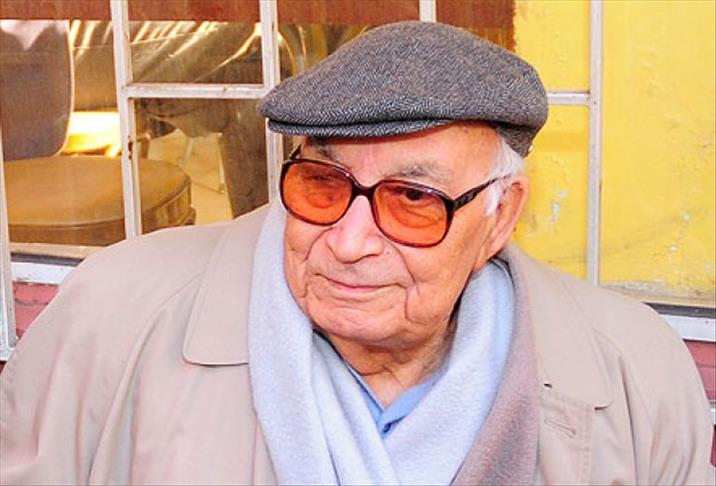
By Burcu Arik
ISTANBUL
One of Turkey’s most famous living writers, the country's first candidate for the Nobel Prize in Literature and an outspoken intellectual, Yasar Kemal, is critically ill.
The 92-year-old author, whose works have been published in dozens of languages, was hospitalized on Wednesday in Istanbul due to respiratory problems.
Kemal, who wrote more than 20 novels and nearly 10 experimental works, besides short stories, is also famous for recreating Turkish as a literary language.
Although the Turkish health minister announced on Thursday that Kemal is recovering, the author remains in an intensive care unit and his condition is still critical.
Kemal is now receiving admirers' and followers' blessings; Semih Gumus, one prominent literary critic, is among them.
"No matter what we say to describe Yasar Kemal, it will be not enough. He is the matchless writer of Turkish literature," said Gumus.
Stating that no work will be sufficient to depict him and his achievements, Gumus added: "When we think about the works to be written to depict Yasar Kemal, we can notice that one face of our literature is doomed to stay in shade."
Having both Turkish and Kurdish origins, Kemal was born in 1923 in Osmaniye in southern Turkey. Losing his right eye due to a knife accident, the writer had a difficult childhood.
Kemal first worked as letter-writer for illiterate citizens in small villages, then became a journalist and finally a novelist, always believing in "human beings and nature," defining his art as "being at the proletariat's service."
"I am against those who oppress and exploit the people; it does not matter whether oppression comes from feudalism or the bourgeoisie. Whoever is preventing the happiness of the public, I am against it with my art and with my whole life," Kemal said in a 1971 newspaper interview.
"I do not want my art to diverge from the public like flesh and bone. I do not believe in an art which is separated from the public," he added.
The theme of "art for people's sake" dominated Kemal's literary studies and he merged this theme with his political thought.
"Think about ‘Ince Memed’ [My Hawk – Kemal’s most prominent work] which has already sold more than one million copies over 60 years and is still being sold today just like a brand new novel," Gumus says.
Receiving international acclaim for Ince Memed (My Hawk) which was firstly published in 1955, Kemal used a mythological hero – the eponymously named Ince Memed – to criticize society and its values. In the novel, Memed runs away to the mountains due to the oppression of the Agha (landowner).
Published in 40 languages, Ince Memed was also based on the lives and sufferings of Anatolian people.
According to Gumus, the main issue for Yasar Kemal in his works is the nature of human beings, the corruption created by social factors and the effects of this corruption on the inner world of people.
Kemal said in a 2008 interview with U.K. newspaper The Guardian: "I don't write about issues, I don't write for an audience, I don't even write for myself. I just write."
"That is why he did not write of 'there' or 'here', he wrote the novel searching for universal values," says Gumus.
Gumus adds: "I have defended the Turkish which was used by Yasar Kemal for writing tens of cult novels, as a fully self-sufficient literary language."
Including the Cino del Duca World Prize in 1982 and the Legion d'Honneur in 1984, Kemal was awarded with many international and domestic prizes.
Kemal was not only a successful novelist but a sensitive citizen and activist. "He always took a firm stand against fascism and reaction. To understand how Yasar Kemal is a kind and honest person, you need to know him closely," Gumus says.
In 2013, Armenia’s Culture Ministry also awarded Kemal with the Grigor Narekatsi Medal.
Anadolu Agency website contains only a portion of the news stories offered to subscribers in the AA News Broadcasting System (HAS), and in summarized form. Please contact us for subscription options.


